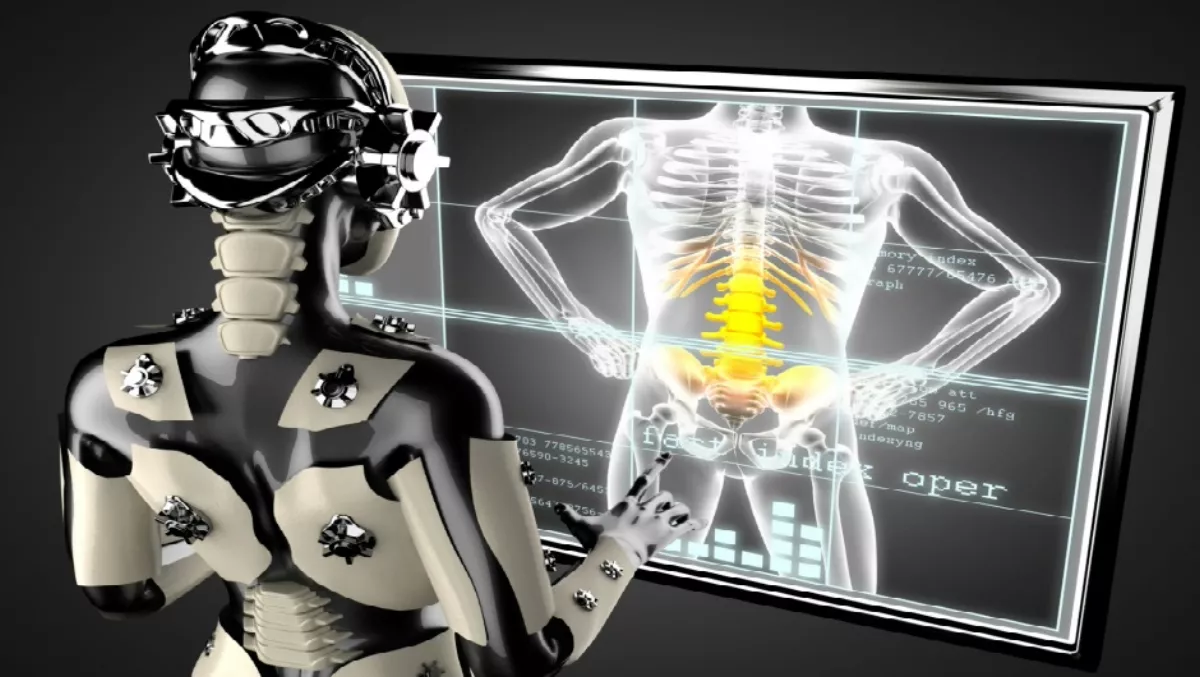
How technology saved my husband's life
There are times that I think technology is taking over our lives and not always in a positive way. Consider some of the top 2016 predictions by Gartner:
- By 2018, more than 3 million workers globally will be supervised by a "roboboss"
- By 2018, 2 million employees will be required to wear health and fitness tracking devices as a condition of employment
How much do these technical innovations threaten our humanity or cross the boundary of sacrificing personal privacy for the public good? I used to worry in a similar fashion about things like social and smartphones. I watched my teenage children addicted to Facebook and tethered to their smartphone, and had to lay down the law about limits and no phones at the dinner table.
And yet, two years ago, I credit these same technologies with helping to save my husband's life.
It was the big 20th anniversary, and New Jersey girl that I am, we were planning on a romantic getaway to Cape May New Jersey. My husband came home from work Wednesday night, and instead of packing, he plopped down on the sofa and asked for a glass of ginger ale. He wasn't feeling so great.
I was annoyed. Our anniversary just never seems to work out. Either he's travelling or I'm travelling or one of our children has a major swim meet or La Crosse game. He assured me he'd be okay, just needed to rest. He'd feel better in the morning. But he didn't.
By Friday morning, when he hadn't been able to drink anything for 36 hours, I insisted we had to go the doctor. I knew he'd resist. He is a man, and British as well, so not prone to going to a doctor. I further warned him: "He will probably send you to the hospital because you are dehydrated.
So off to the doctor, and then to the hospital, we went. The hospital hydrated him and ran some tests. It wasn't the flu. There was something odd about his white cell count and his fever wouldn't go down, but the hospital assured me it was probably some other bug, not to worry; let the bug run its course, they advised. Another 36 hours later, he got worse, not better. And he still couldn't drink anything and even jelly was out of the question.
I called the hospital, who said they still thought a bug, nothing more they could do.
Alone at the kitchen table on a Saturday night, I started Googling. Things just weren't adding up. If it were a bug, my son, the bug magnet, would have caught it. I can only disinfect so much. Lyme disease seemed a possibility, since he'd been mulching in the garden the prior weekend. Google revealed a lot of other scary things it might be.
I posted messages on Facebook - that technology I had been lamenting - did anyone have any ideas?
Monday morning we went back to the doctor with my husband now barely able to walk into the office. After a round of hydration and more blood tests, I asked our primary care doctor about Lyme disease. He wasn't sure, but there was a hint of panic in his voice. "What else did you find? How about Rocky Mountain spotted fever?" he asked.
I hadn't actually considered that one, but here is what our doctor wasn't telling us: My husband's body was shutting down. His platelet count was at a dangerously low level. The doctor would prescribe some aggressive antibiotics but if my husband didn't respond to the drugs, he would have to be admitted to the hospital.
I texted this news to a few close friends. One, who had suffered for years under misdiagnosed Lyme disease, suggested they test for Erlichia, another tick-borne bacteria. In the absence of a smartphone, I would not have otherwise called these friends, and of course now, we can barely imagine a world without texting.
Indeed, that test came back positive. In this way, the Internet, Google, Facebook and smartphones ultimately helped our doctor with the correct diagnosis. My husband is now a statistic in the CDC database. Data girl that I am, I picture his data point on that geographic map. Just imagine if anyone in the hospital had been tracking the increase in tick-borne illnesses this way. Or that the data was more current than six years old!
I think about the what-ifs: what if I hadn't been home when he fell ill? What if I hadn't messaged some friends? What if I had taken only the hospital's advice and waited it out?
There are times I worry that technology is taking over too much of our lives. And with any innovations, we have to learn to adapt, to set the guidance of how to us it. In this case, I credit technology with helping to save my husband's life. I like the stories of how some hospitals are now using social analytics as an early warning sign for outbreaks, to find the patterns that a lone doctor can't readily see just as I shudder about all that personal data that many are so openly sharing. There is the Healthcare Hashtag Project, and I heard an exciting presentation by the Canadian Institute for Health Information at MicroStrategy world on how they are mining these tweets. For sure, the out-of-the-box social integration now supported in a number of BI tools make this analysis easier and more mainstream. But would I ever have tweeted such personal details? It's doubtful … maybe, as a last resort.
As for Cape May and our anniversary, we still haven't made it there. Maybe for our 30th?

